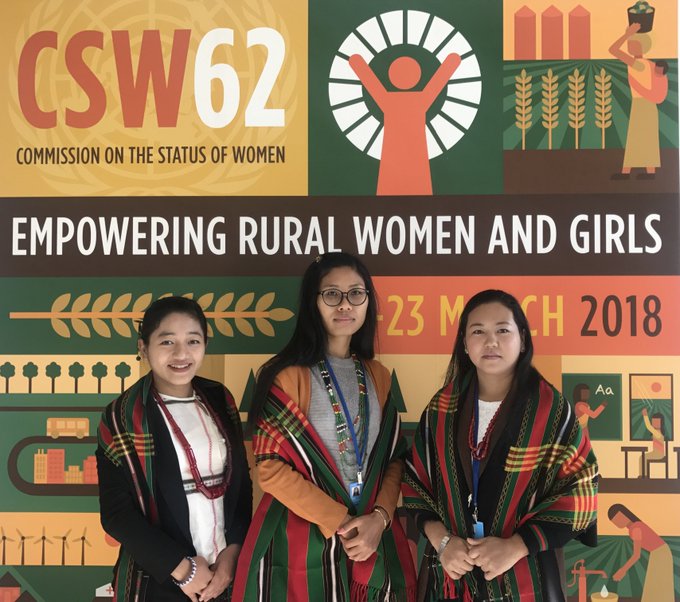
The role of women and the gender issue in the fight against climate change
Climate change represents a risk for millions of people. However, women are the most vulnerable with respect to the negative consequences of this phenomenon. A few simple considerations of the Italian Climate Network help us to perceive its global effect.
It is now an established fact that climate change is a risk factor for the life and fundamental rights of millions of people in ways that reflect social and economic inequality within their social settings. Less obvious is the fact that women are among the groups most exposed to the consequences of this phenomenon and some simple considerations help to perceive their global significance.
Women and the emblematic case of Lake Chad
Suffice it to say that in developing countries women represent not only 43 per cent of the agricultural workforce, with peaks of up to 70 per cent in the countries of sub-Saharan Africa. For various cultural reasons, women are also the subjects to whom other strategic roles are delegated in accordance with local social dynamics. The responsibilities traditionally reserved for women range from preparing food to educating children. Moreover, it is women who are mainly engaged in agricultural activities and subsistence farming, cultivating small plots of land close to the villages; it is always women who make use of the water resources in the neighbourhood and manage the 'cascade of uses' of water in the domestic environment, from the preparation of food to hygiene. In this regard, we may note the example of Lake Chad in central-northern Africa, which has suffered a dramatic reduction in its surface area, forcing women of the nomadic tribes in the region to reach increasingly distant sites to acquire water.
Women are more exposed to poverty
The issue does not only concern water and agriculture but also extends to natural disasters, which are apparently occurring more frequently in various parts of the world. The consequences of a flood, for example, generate particular socio-economic effects, from the scarcity of food to health emergencies, to which women are more exposed. In other words women are more exposed to poverty and are less reactive than men with respect to its consequences on account of their duties relating to children and their lower level of consideration in professional terms. This holds true in absolute terms, also when certain events occur in highly developed countries. This is demonstrated by Hurricane Katrina, which in 2005 highlighted the lack of preparation even of the United States in the face of a meteorological catastrophe, which left behind it not only a trail of destruction but also huge social distress, especially on the female front and in an even more sensitive way among the African-American community.
A study conducted by Jacquelyn Litt, Professor of Women's and Gender Studies at Rutgers University in New Jersey, showed how poverty soared after the cataclysm occurred, and revealing how more than half of the families in conditions of poverty were composed of single mothers. These conclusions may, in fact, be extended to any other city in the world exposed to risks related to rising sea levels as a result of climate change.
Women in the food supply chain
Returning to the case of agricultural communities, which represent the most widespread reality amongst populations exposed to climate risk, it should be noted that despite their fundamental role in the process of food production women are in fact denied access to any credit facility for technological upgrading and adaptation that might improve their condition. The possible solutions are quite obvious but nonetheless not easily implemented. By valorising the productive capacity of women in view of attaining a level of sustainable agriculture we would not only be working for the environmental future of the planet, but we would be moving towards a situation where women would be capable of making full use of their individual rights, and opposing poverty and malnutrition. Moreover, when they become involved in decision-making processes regarding climate issues it has been seen that women do make a difference. Thanks to their knowledge and experience in the management of natural resources they are able to propose a viable response to environmental disasters with respect to both the safeguarding of the population and post-disaster reconstruction and the identification of and access to new resources that are immediately required.
The gender issue in the framework of the United Nations
Recognition of these dynamics has led the United Nations to initiate a specific reflection on gender issues and climate change within the UN Framework Convention on Climate Change (UNFCCC) and, that is, focusing on the role that women may have in both adaptation to current global warming and in the mitigation of such phenomena with a medium and long-term perspective. With the creation in July 2011 of UN Women, a workgroup specifically dedicated to gender equality, the aim of United Nations is to promote and support the incorporation of a gender perspective in policies and national action plans concerning sustainable development and climate change.
The outcome of the international debate is a broad range of actions, from the involvement of women in decision-making processes which may affect the climate at the local and global level to the financial and the technological promotion of business initiatives for women, from agriculture to craftwork, which would be capable of promoting social stability - starting at the basic level of families - and, consequently, also the quality of the environment. The whole discourse thus forms part of the broader issue of women's empowerment. It is worth noting that the latter term has undergone no alteration and has been adopted in international parlance, thereby enhancing its implications and extending its scope, from the sphere of human rights to the even broader debate on global environmental protection.
Chiara Soletti
Published for LIFEGATE on LIFEGATE.
